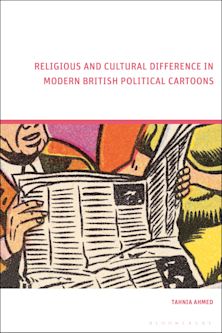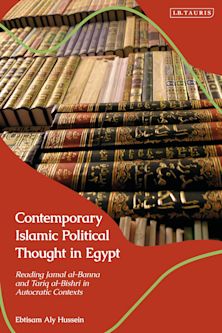- Home
- ACADEMIC
- Religious Studies
- Religion and Politics
- Islamophobia and Anti-Muslim Sentiment
Islamophobia and Anti-Muslim Sentiment
Picturing the Enemy
- Textbook
Islamophobia and Anti-Muslim Sentiment
Picturing the Enemy
- Textbook
Exam copy added to basket
Choose your preferred format. Please note ebook exam copies are fulfilled by VitalSource™.
Buy from Bloomsbury eTextBooks
You are now leaving the Bloomsbury Publishing website. Your eBook purchase will be with our partner https://www.vitalsource.com.
Your credit card statement will show this purchase originating from VitalSource Technologies. They will also provide any technical assistance you might require.
You must sign in to add this item to your wishlist. Please sign in or create an account
Description
In the minds of many Americans, Islam is synonymous with the Middle East, Muslim men with violence, and Muslim women with oppression. A clash of civilizations appears to be increasingly manifest and the war on terror seems a struggle against Islam. These are all symptoms of Islamophobia. Meanwhile, the current surge in nativist bias reveals the racism of anti-Muslim sentiment. This book explores these anxieties through political cartoons and film––media with immediate and important impact. After providing a background on Islamic traditions and their history with America, it graphically shows how political cartoons and films reveal Americans’ casual demeaning and demonizing of Muslims and Islam––a phenomenon common among both liberals and conservatives. Islamophobia and Anti-Muslim Sentiment offers both fascinating insights into our culture’s ways of “picturing the enemy” as Muslim, and ways of moving beyond antagonism.
Table of Contents
Note on Terms and Names
Introduction to the Second Edition
Chapter 1: How Cartoons Work and Why Images Matter
Chapter 2: Overview of Western Interactions with Muslims
Chapter 3: Symbols of Islam, Symbols of Difference
Chapter 4: Stereotyping Muslims and Establishing the American Norm
Chapter 5: Extreme Muslims and the American Middle Ground
Chapter 6: Moments: 1956-2006
Chapter 7: Since 2006: The Emotions of Resurgent Nativism and Liberal Empathy
Chapter 8: Moving Pictures: The Trope of “Islamic Terrorism”
Conclusion: common Denominators versus Essential Difference
Glossary
Notes
Bibliography
Index
About the Authors
Product details
| Published | Jul 19 2018 |
|---|---|
| Format | Ebook (Epub & Mobi) |
| Edition | 2nd |
| Extent | 240 |
| ISBN | 9781538107386 |
| Imprint | Rowman & Littlefield Publishers |
| Illustrations | 101 b/w illustrations; 2 tables |
| Publisher | Bloomsbury Publishing |
About the contributors
Reviews
-
Through identifying and dismantling common tropes, Gottschalk and Greenberg open up space for us to imagine more nuanced and multidimensional depictions of Muslims.
Reading Religion
-
As Islamophobia threatens to become the new anti-Semitism, Islamophobia and Anti-Muslim Sentiment becomes 'must' reading. Gottschalk and Greenberg perceptively and graphically demonstrate the extent to which prejudice and discrimination against Islam and Muslims have become inherent in American mainstream culture.
John L. Esposito, author, What Everyone Needs to Know about Islam and Sharia: What Everyone Needs to Know
-
Islamophobia is an important contribution to the understanding of prejudice as a common factor in American culture, particularly in the media. The analysis of political cartoons convincingly shows how pervasively anti-Arab and anti-Muslim attitudes have become accepted, even by people who probably consider themselves fair-minded. This study needs to be read by everyone concerned with the problems of religious and racial bias in America today.
Carl W. Ernst, The University of North Carolina at Chapel Hill
-
This ground-breaking book should be read and reread—readers will become acutely aware of how cartoonists have repeatedly disparaged all things Muslim and Arab. The book teaches us to see beyond damaging stereotypes. It is a remarkable achievement, illustrating that there exists a fine line between satire and racism.
Jack G. Shaheen, author, Reel Bad Arabs

































